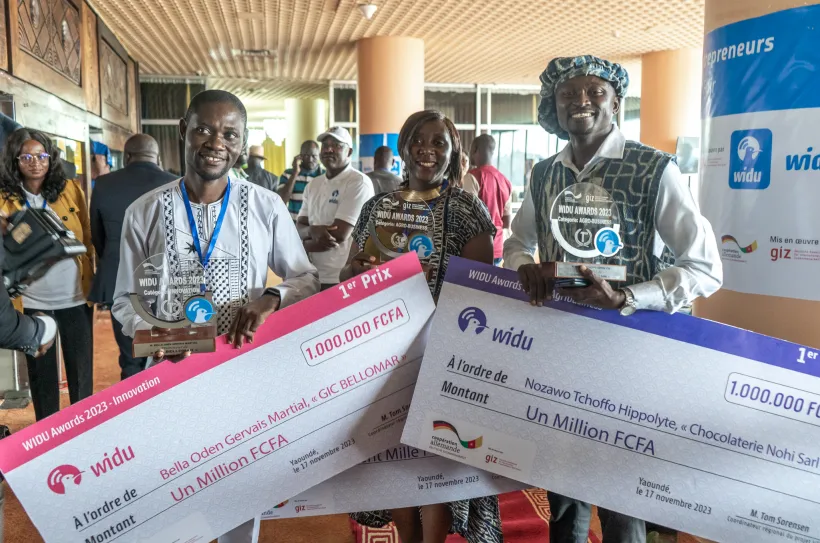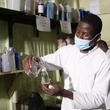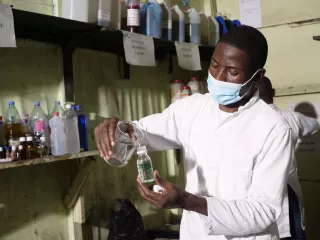
Stopping The Spread of Corona - With Spoiled Fruit
GIC Bellomar by Martial BELLA
With a bioethanol derived from fruit waste, GIC Bellomar is driving medical research forward in Cameroon amidst the Covid-19 pandemic. The participation in the Corona Business Grant also played a crucial role.
At the helm of GIC Bellomar is Martial BELLA, a trained chemist and experienced process engineer. The group, comprising 31 chemists and students, is dedicated to social entrepreneurship. Since its establishment in Douala, Cameroon, in 2002, Bellomar has successfully perfected a series of chemical processes to produce soaps, detergents, bleaches, and shower gels. These products are marketed under the brand "Le Samouraï" and are successfully distributed to hotel chains, restaurants, and hospitals.
Martial gained significant attention, particularly with his bioethanol product derived from fruit waste. This breakthrough proved instrumental for Bellomar during the Covid-19 pandemic. In particular, the disinfectant gel based on bioethanol garnered significant interest in hospitals and even attracted the attention of the Ministry of Health.
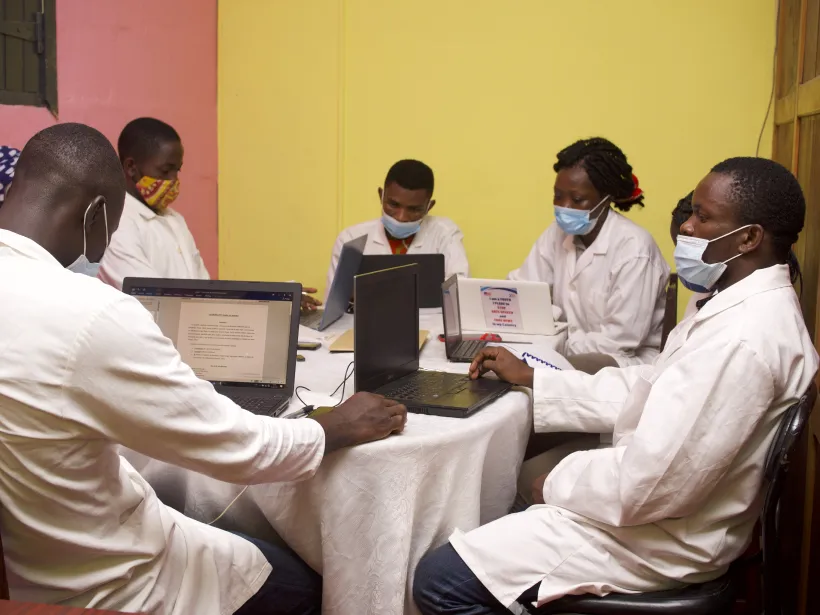
Research and development under challenging conditions
However, the path to a promising drug was arduous. The Covid-19 pandemic directly impacted the founder's business, leading to decreased demand for Bellomar products and disrupted distribution. Despite low productivity, Martial remained committed to his staff. Financially, the situation was challenging. Martial explains, "While we did receive government support, it simply wasn't enough."
With the idea of producing bioethanol from fruit waste, the entrepreneur saw an opportunity to save his business. He knew that through the fermentation of spoiled fruit, followed by the distillation of the fruit mass, pure alcohol—bioethanol—is produced. For him to produce sufficiently, he needed to expand his production capacity. Unfortunately, the necessary financial resources were lacking. Martial describes, "With our own means, we could start the production and distribution of bioethanol on a smaller scale. But that was not enough to meet the demand for our product. It quickly became clear: We wanted to start mass production. But we lacked the financial means."
A Breakthrough with the Corona Business Grant
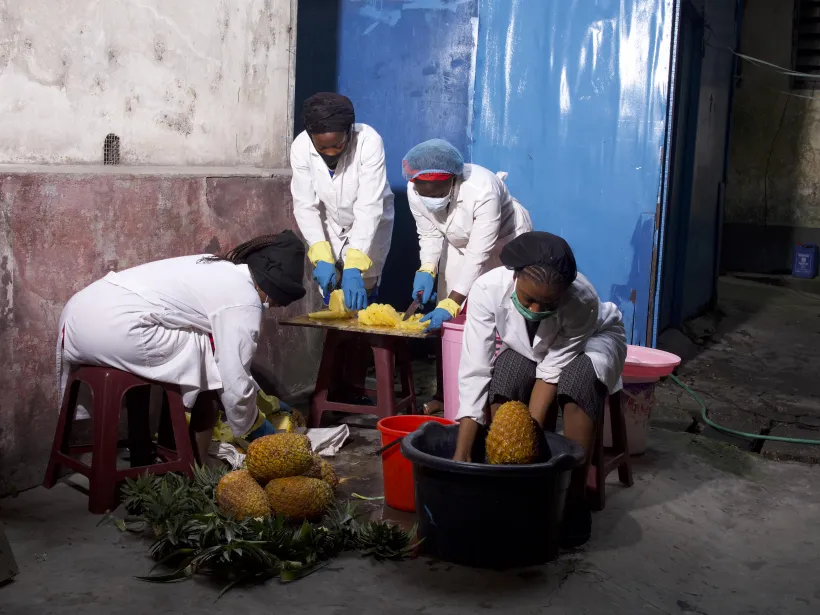
Participating in the Corona Business Grant, a now-closed WIDU funding program, helped establish and test the production chain. Martial co-financed the laboratory materials and raw materials for bioethanol production with the WIDU grant. The high demand for alcoholic medicines during the pandemic acted as a breakthrough for his business. Bellomar supplied hospitals in the area with bioethanol and disinfectants like clockwork. Martial's method has been so successful that even the Ministry of Health sought his support in pandemic control in Cameroon.
GIC Bellomar Receives the 1st Prize at the WIDU Awards Cameroon for “Innovation”
GIC Bellomar is a shining example of how research and innovation can be implemented into smart business models. For his idea of producing disinfectants from spoiled fruit, Martial won the first prize for "Innovation" at the WIDU Awards in Cameroon in November 2023. The founder particularly impressed the jury with his resilience during the Covid-19 pandemic and his idea, which made a significant contribution to pandemic control in Cameroon.
